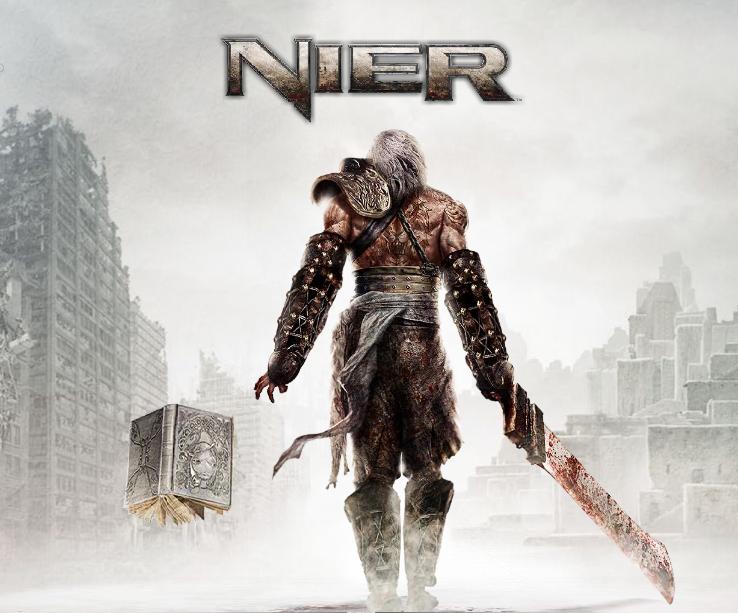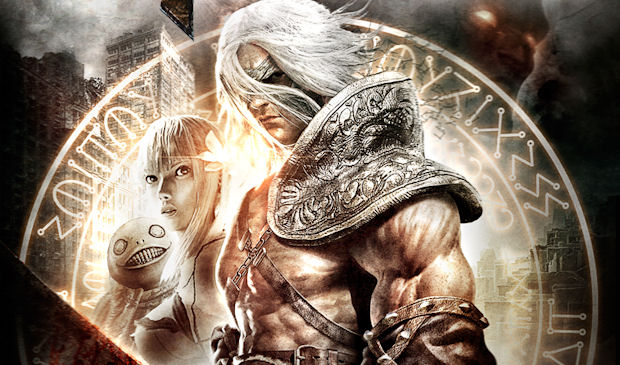 Violence is often presented as an unquestionable means of conflict resolution in video games. Many of the industry’s most popular titles utilize violence as the primary way the player interacts with the world. Games expects players to accept this without question. I never really thought about whether violence remained a necessary solution to fighting hosts of “evil” creatures–until I played NieR.
Violence is often presented as an unquestionable means of conflict resolution in video games. Many of the industry’s most popular titles utilize violence as the primary way the player interacts with the world. Games expects players to accept this without question. I never really thought about whether violence remained a necessary solution to fighting hosts of “evil” creatures–until I played NieR.
Spoilers and stuff
Throughout NieR, the player encounters and defeats many creatures called “Shades”–in the lore of NieR’s world, they make constant attacks on human settlements. Because of their pervasive belligerence, I assumed their objective was the same as any video game adversary–my annihilation. NieR doesn’t present a lot of information about their origin; then again, how many fantasy role-playing games bother to explain the origin of evil slimes and ghosts? Throughout most of the game, the player never really questions their role in the story as the traditional “paragon of virtue.” Like I have done so many times before, I kill these enemies because they’re in my way—I do this because I am the hero.
NieR has a way of usurping our expectations because it knows how gamers think. Toward the end of the game, you learn that these “Shades”, which harass and attack you throughout the adventure, are actually “Gestalts”- the souls of human beings. More than 1,300 years before the events of the game, humanity had reached a breaking point with an incurable terminal disease–their only hope was to sever soul from body and leave the souls in stasis until a cure could be found. The “Replicants”, on the other hand, which appear human in the game, are the cloned bodies of these souls. They are immune to the effects of the disease and given the task of “cleaning” the Earth.
At some point, the Replicants obtained consciousness, making it impossible for these Gestalts to return to their bodies. These souls aren’t passive observers, they retain their consciousness. They are people. I am killing the souls of the human race. The Gestalts have no means with which to communicate with me and my fellow Replicants. Consequently, they have no choice but to attack. I am the man who kills them, attacks their homes, and am part of the race that has now stolen their bodies forever.
I realize that my enemies were merely acting out of self defense. My reaction, though, doesn’t change the outcome. My character can’t believe that this is the case, and decides to continue killing anyway if only to save his daughter, Yonah. Playing through the first time, I was inclined to agree; whatever the case, they were still trying to kill me and my friends, and there was only one solution: violence
 My second playthrough, however, offered a new perspective. Having assumed that the Shades mumbled random gibberish, I hadn’t payed mind to them as conscious beings. Playing the game again translates what was previously indecipherable speech. At this point, I realize the effects of my actions. I can see their hopes and their need to defend themselves against me. They call me “the monster” for a reason. They express their anger at the Replicants, who stole their bodies by developing sentience, an act that I, the player, am complicit in. These realizations are incredibly unnerving. The world of NieR is broken–damned to violence and death. My actions have only contributed to this brokenness. There’s no glory in this violence.
My second playthrough, however, offered a new perspective. Having assumed that the Shades mumbled random gibberish, I hadn’t payed mind to them as conscious beings. Playing the game again translates what was previously indecipherable speech. At this point, I realize the effects of my actions. I can see their hopes and their need to defend themselves against me. They call me “the monster” for a reason. They express their anger at the Replicants, who stole their bodies by developing sentience, an act that I, the player, am complicit in. These realizations are incredibly unnerving. The world of NieR is broken–damned to violence and death. My actions have only contributed to this brokenness. There’s no glory in this violence.
The saddest element of NieR is that you can do nothing to prevent these events from transpiring. Like Bioshock, when Atlas finally reveals that the player has been controlled since the beginning of the game, NieR shows that the protagonist’s entire life was controlled from the very beginning of his journey. As a Replicant, his destiny was to be the vessel for his corresponding Gestalt. By destroying the process by which the souls return to their bodies, the hero dooms human beings to extinction. I could not change the fate of this world.
Perhaps it says something about me, that a videogame world where violence wasn’t the best solution, though it was the only one available, shocked me out of my ethical slumber. I’m not willing to let the prevailing paradigm slide because it’s the easy thing to do. If a video game presents a violent solution, it should be examined and interrogated, not passively accepted.
NieR may not present any alternatives to extinction, but that doesn’t mean I have to settle for easy answers.
